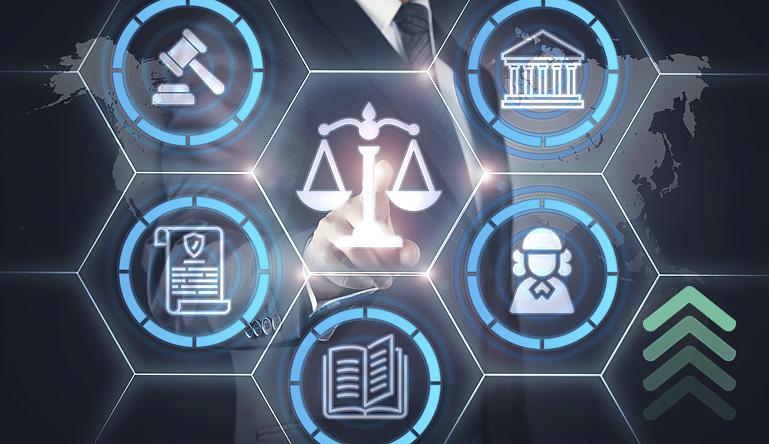-
 Vertical Product Manager, Catalis Courts & Land Records
Vertical Product Manager, Catalis Courts & Land RecordsWith over two decades in product management, project leadership, and business analysis, she is passionate about product success.
View all posts
Strengthening Defendant Rights and Court Compliance
Upholding Due Process in the Pretrial Phase
The right to due process is one of the most fundamental principles of the justice system, ensuring that every individual is treated fairly and given a fair opportunity to defend themselves before trial. However, achieving this balance can be complex, especially during the pretrial phase, when courts must make critical decisions about release, supervision, and compliance enforcement.
Historically, pretrial detention rates have been disproportionately high, with many individuals remaining in custody simply because they cannot afford bail—not because they pose a significant public safety risk. Additionally, inconsistent supervision practices and limited tracking capabilities have made it difficult for courts to monitor compliance effectively while protecting defendants’ rights.
Pretrial software solutions are transforming this landscape, ensuring that courts can:
- Monitor compliance fairly and efficiently
- Reduce unnecessary detentions while maintaining public safety
- Provide defendants with clear, consistent supervision expectations
- Ensure due process protections for all individuals, regardless of financial status
By leveraging electronic tracking, compliance alerts, and automated reporting, courts can uphold constitutional protections while improving overall case management. This article explores how modern pretrial software strengthens due process and enhances compliance supervision for a more equitable and transparent justice system.
The Role of Electronic Tracking in Due Process
One of the biggest challenges in pretrial supervision is ensuring that defendants adhere to their release conditions without unnecessary restrictions on their freedom. Traditional supervision methods—such as manual check-ins or reliance on cash bail—have often been inconsistent and ineffective, leading to unnecessary jail stays for individuals who might otherwise comply with court orders.
Electronic tracking tools help courts strike a balance by providing real-time insights into a defendant’s compliance while minimizing disruptions to their daily life. These tools include:
GPS Monitoring – Tracks location compliance for individuals under geographic restrictions or curfews.
Court-Ordered Location Alerts – Notifies pretrial officers if an individual enters or leaves a restricted zone.
By using electronic tracking in a targeted, data-driven way, courts can ensure that only individuals who require active monitoring are placed under such conditions—upholding due process while enhancing public safety.
Automated Compliance Alerts: Reducing Violations Without Unnecessary Detention
A key component of due process is ensuring that defendants understand their obligations and have every opportunity to comply before facing penalties. Many pretrial violations stem not from willful noncompliance but from miscommunication, lack of resources, or administrative errors.
Automated compliance alerts help prevent these issues by providing real-time notifications to both defendants and court officials, ensuring that everyone is informed and up to date.
Defendant Notifications – Text, email, or app alerts remind individuals of:
- Upcoming court appearances
- Supervision check-ins
- Payment due dates for fines or fees
Pretrial Officer Alerts – Automated violation warnings notify pretrial staff if a defendant:
- Misses a scheduled check-in
- Fails to appear for a hearing
- Failed a drug test
Judicial Oversight – Judges receive real-time compliance data, allowing them to assess violations objectively rather than relying on incomplete or outdated reports.
These automated alerts not only improve compliance rates but also prevent unnecessary arrests or penalties for minor infractions—ensuring that individuals have every opportunity to meet their obligations before facing further legal consequences.
Automated Reporting: Increasing Transparency and Judicial Efficiency
Due process also requires that courts operate with transparency, ensuring that all pretrial decisions are based on clear, accurate, and objective information. In the past, supervision reports were often fragmented, requiring manual data entry, inconsistent record-keeping, and limited visibility into case histories.
With modern pretrial software, automated reporting provides:
Real-Time Case Summaries – Judges and pretrial officers can access a defendant’s full supervision history at a glance, ensuring informed, fact-based decisions.
Customizable Reports – Courts can generate detailed compliance reports tailored to their jurisdiction’s requirements.
Audit Trails for Due Process Protection – Every action—from risk assessments to supervision updates—is logged and time-stamped, ensuring accountability and transparency.
By leveraging automated reporting, courts reduce administrative burdens, minimize errors, and create a more efficient, data-driven approach to pretrial decision-making.
Enhancing Fairness with Individualized Supervision Plans
Every defendant’s circumstances are different, and due process demands that courts consider individualized needs rather than applying a one-size-fits-all approach to pretrial supervision. Some individuals may require more intensive monitoring, while others may be fully capable of self-reporting without additional restrictions.
Pretrial software solutions enable courts to develop customized supervision plans that take into account:
Risk level assessments – Data-driven tools help determine whether a defendant poses a public safety risk or flight risk.
Financial circumstances – Ensuring that pretrial conditions do not unfairly penalize low-income individuals.
Mental health and substance use needs – Allowing for alternative interventions, such as referrals to treatment programs instead of incarceration.
By using individualized supervision plans, courts can uphold due process protections while ensuring that supervision remains fair, effective, and aligned with public safety goals.
A More Equitable Pretrial System with Catalis
The pretrial phase is a critical moment in the justice system—one where defendant rights, court efficiency, and public safety must be carefully balanced. By leveraging modern pretrial software, courts can:
- Strengthen due process protections by ensuring fair, individualized supervision plans
- Improve compliance rates through automated reminders, check-ins, and real-time tracking.
- Increase transparency with comprehensive, real-time compliance reports.
- Reduce unnecessary detentions by using objective, risk-based supervision tools.
- Enhance judicial decision-making with instant access to case data and compliance history.
Catalis Community Justice Solutions provides state-of-the-art pretrial software that supports equitable, efficient, and transparent pretrial supervision. By implementing data-driven tracking, automated compliance tools, and individualized supervision options, Catalis empowers courts to protect defendant rights while improving operational efficiency—ensuring a stronger, more just legal system for all.
Visit Catalis for a comprehensive list of our government/public sector solutions.


